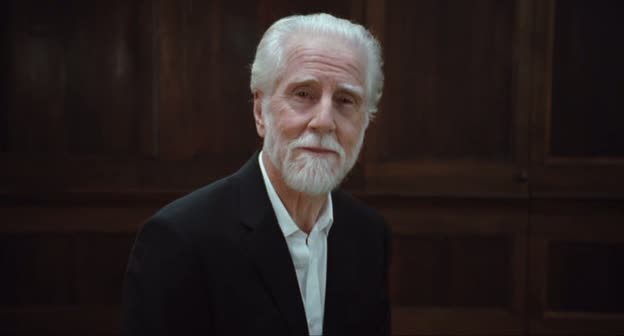Film
SLEEPING BEAUTY: A FEW WORDS ON MY FAVORITE MOVIE OF 2011
Sleeping Beauty, the mesmerizing, disquieting first film directed by Australian novelist Julia Leigh, was the most psychologically penetrating work in any medium that I encountered this year. It’s weird how the most impenetrable works can also be the most penetrating.
Leigh seems to get that paradox. “My vagina is not a temple,” says Lucy, assuring her prospective employer that she has no problem with taking sleeping pills and allowing wealthy men access to her nude, unconscious body. “Nevertheless, you will not be penetrated,” the madame promises. Like Lucy cares about being penetrated. We’ve already seen her sit patiently as a medical researcher slowly slides a very long plastic deep down her throat. You know those clowns who pull scarves from their sleeves and the scarves never seem to end? The tube is like the scarves in reverse.
And in fact it’s the lack of penetration that seems to amplify Lucy’s discomfort as time passes, her desire to know what exactly these wealthy clients are doing to her while she’s asleep. If they’re not fucking her, then what? The absence of the definite inspires dread, reflection, circular thought. Like Lucy after she leaves the brothel, we’re troubled and curious after we’ve left the theater.
I had (and have) conflicting feelings about whether Leigh should have shown us what happens to Lucy when she’s asleep. (She does.) It would have been a more mysterious, austere movie (and it’s already pretty fucking mysterious, pretty fucking austere) had she chosen to leave us in the dark with Lucy. I think she chose otherwise because that would have aligned us too much with Lucy, and to put us in the position of voyeurs while the protagonist of the film–who looks like a barely pubescent girl, even though both the character and the actress are in their 20s–lies naked and unconscious for long periods of screen time is a radical distancing technique. Leigh said somewhere or other that her goal was to make a film about “radical passivity.”
The tension between activity and passivity is always alive, and always delicate. Things are done to Lucy, but she positions herself as a subject. And the character hums with a kind of controlled hatred; it’s as though she acts violently against the world by putting herself at its mercy.
Emily Browning, as Lucy, is an extraordinary actress. The film itself is visually one of the most beautiful I’ve seen in years. It’s also one of the purest of vision. It got mixed to negative reviews at Cannes; audiences were apparently put off by its coldness, its clinical gaze, and the sometimes-grotesque nudity. But I think Leigh made something extraordinary.
Tags: emily browning, Film, julia leigh, sleeping beauty



Interesting. Is this based at all on Yasunari Kawabata’s House of Sleeping Beauties? Seems like a similar premise, just with a shift of focus to one of the girls instead of one of the clients.
This is another movie that I’ve been hearing and seeing and reading neat things about. I don’t know why, but I have this feeling that it will be a lady’s version of Drive, whatever that means.
wtf does that mean
it’s “vaguely inspired by”
having seen both, i have no idea what the hell that means
I hope it says that in the credits.
I see what you’re saying but I think if you see SB you’ll decide it’s a superficial comparison. Both movies are heavily stylized but Drive is essentially a very traditional genre movie with an art house gloss (that’s not a denigration, I liked Drive), but Sleeping Beauty, even if it were shot in some kind of classical Hollywood cinema style (as it is, almost every scene is a wide shot, single take, immaculately composed frame) would be very very difficult for most audiences to digest.
hahaha
unfortunately that’s my language, but if i remember correctly the Kawabata is actually mentioned in tangent to the film, whether in the credits or in the press materials.
goo.gl/tX8v0
That makes more sense. I guess the “feeling” I had about SB from what I read seemed a weird correlative to Drive.
I feel a weird shame. I’m going to eat pizza pockets.
I just got a copy of SB, looking forward to watching it.
goo.gl/tX8v0
I really want to see this.
goo.gl/tX8v0
Dig it.
goo.gl/tX8v0
goo.gl/tX8v0
Nice write-up. I can’t wait to see this now.
This is the softest, most unspecific, sexually vanilla film I’ve seen in a long time.
Agree with Blair. Seeing The Girl with the Dragon Tattoo and then this makes the latter seem like a children’s fable of sexual indiscretion.
Leigh’s mentioned her debt in interviews, but it really should be in the credits. Then again, the book is so infinitely superior to her film that it might be better to not tarnish its name with the association.